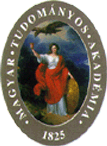
A 21. század kommunikációja
Mobil információs társadalom
Katz, James E. – Mark Aakhus, szerk.,
Perpetual Contact: Mobile Communication, Private Talk, Public Performance,
Cambridge: Cambridge University Press, 2002.
James E. Katz és Mark A. Aakhus: "Introduction: framing the issues"
A telefon, s annak legújabb – mobil – megtestesülése, írják a szerzők, egyedülálló helyet tölt
be az emberiség fejlődéstörténetében. Az autónak és a repülőgépnek voltak előképei: a lovaskocsi és a madarak.
Az embereknek sejtéseik lehettek arról, hogy mi vár rájuk, ha egyszer a megfelelő találmányok megszületnek.
Ellenben a telefon nyújtotta lehetőséghez hasonlóra az állatvilág nem nyújtott példát. Az emberi képzelet a
valósidejű, nagy távolságokat áthidaló interaktív szóbeli kommunikációt olyan képességnek tartotta, amellyel
az isteneket sem mindig ruházta fel: még Zeusz is a hírnök Hermészre volt kénytelen hagyatkozni.
A mobil kommunikáció terjedése – elsősorban a celluláris telefonok alakjában, de egyre inkább más
drótnélküli eszközök formájában is – megváltoztatja az emberek életét és kapcsolatait. A celluláris
telefon felgyorsít és hatékonyabbá tesz, ugyanakkor rugalmasabbá változtatja az üzleti, családi és magánéletet.
Eddig kihasználatlan időszegmensek munkára foghatók. A mobil technológia a személyes együttlétek jellegét is
módosítja, amennyiben harmadikként mindig jelen van – a telefon. Másrészt viszont a visszahúzódásra
hajlamosak kényszerű teherként élik át az állandósult elérhetőséget. S végül nem lebecsülhető a mobil telefon
politikai mozgósító potenciálja.1
A mobil telefon rohamos elterjedése és óriási hatása dacára, írják a szerzők, alig látunk vonatkozó társadalomtudományi
kutatásokat. A Perpetual Contact tehát – szándéka szerint – hiánypótló munka. Egyrészt
azt vizsgálja, hogy a mobil telefon hogyan változtatja meg az emberek életét. Ezt a vizsgálatot nemzetek-közötti
összehasonlító keretben folytatja. Másrészt az új technológia, éppen szokatlansága révén, az emberi viselkedés
eddig rejtett dimenzióira világít rá.
Katz és Aakhus hangsúlyozza, hogy a mobil telefon társadalomtudományi vizsgálatának mind az emberi, mind a
technikai dimenziókra ki kell terjednie. A szintetizáló látásmódot elősegítendő, új kifejezést vezetnek be,
az Apparatgeist terminust. Az "apparat" a gép dimenziójára, a "Geist" a szellem dimenziójára
utal.2 A terminus részletes magyarázatát a kötet 19. fejezete tartalmazza.
1. [We should not] underestimate the mobile phone's ability to help effect large-scale political
change. Having recently become wildly popular in Manila, mobile phones were instrumental in organizing
public pressure in response to personal corruption charges that forced Philippine president Joseph Estrada
from office in January 2001. Throughout 2000, anti-Estrada text messages, such as hostile slogans and satirical
jokes, were aggressively propagated over the system. One government response was to encourage citizens to
'just turn their cell phones off'. As the crisis intensified, anti-Estrada leaders began using 'phone trees'
to quickly organize massive demonstrations against Mr. Estrada. When riot police would maneuver to contain
demonstrators, protest leaders would mobile phone messaging to redirect the crowds. These efforts culminated
with the ouster of Mr. Estrada" (3. o.)
2. "Given the omnipresence, the expansive multitasked functions, and the far-reaching social implications
of thr mobile and personal communications technology [PCT], it would seem worthwhile to make it a focus of
theoretical investigation. - We propose a term that brings the focus squarely upon the human use and
consequences of PCTs. Therefore, we coin a new term that encompasses the intersections of these two domains,
namely the social person and the mobile machine. It seeks to encompass both the folk and the expert
frameworks; tangible and intangible aspects; material and social issues; and quintessentially, the machine
and 'spirit' elements of flexible interaction with assistive technology. For this we propose the term
Apparatgeist, which originates from Latin and here is derived from the German and Slavic word, apparat,
meaning machine. The Germanic suffix, Geist, denotes spirit or mind. The potential use for such a bridging
term and model will become evident throughout this volume as the social, cultural, and material aspects of
the mobile are explored. ... We anticipate that the new perspective will allow us to discern with greater
clarity the ways PCT use is socially transformative as well as a lens through which human communication
behavior can be examined" (11. o.)
|
Készült: 2006. december 16. Frissült: 2006. december 20. Az oldalak Internet Explorerre készültek. |
 |